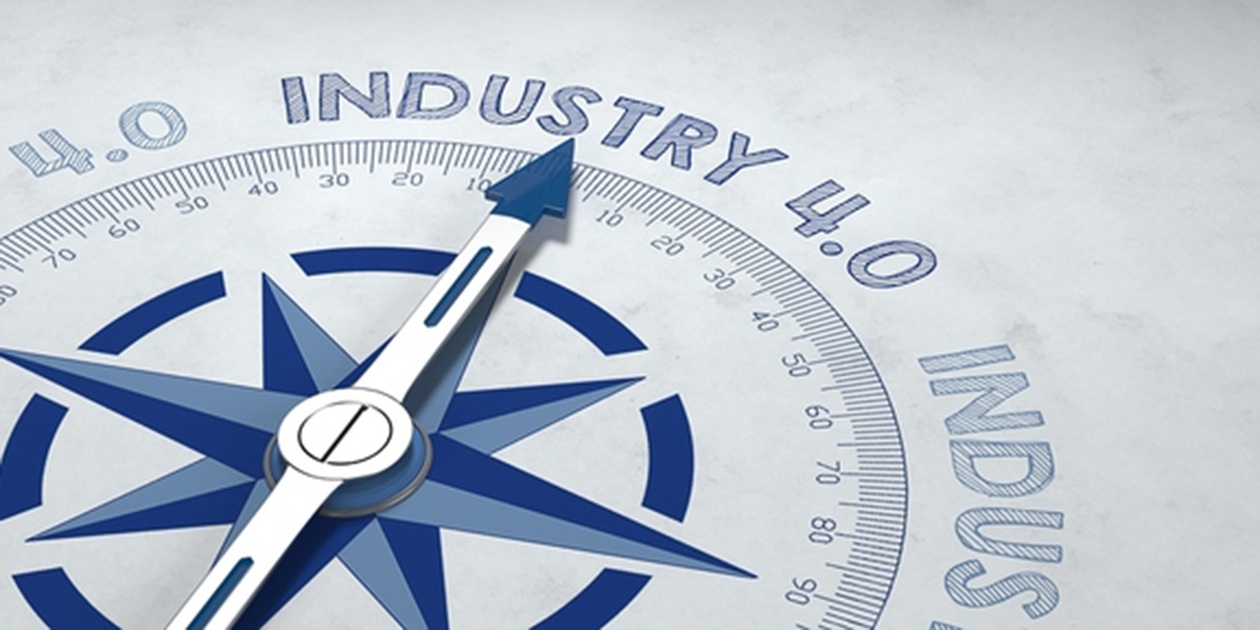
When you hear the phrase “the Industrial Revolution,” you may think of the developments in the late 18th century that enabled people to work less and enjoy life more, such as the Spinning Jenny. You also most likely think that the Industrial Revolution has played itself out. In this assumption, you would be mistaken. You are currently living through what has become known as the Fourth Industrial Revolution.
The fourth Industrial Revolution is the convergence of the physical, digital, and biological spheres. It is already having an impact on the business world, especially B2B companies. Read on to learn more about what the Fourth Industrial Revolution is, how it will impact your firm, what challenges and opportunities it presents, and how you can prepare for it.
What Is the Fourth Industrial Revolution?
The term “the Fourth Industrial Revolution” (also known as “Industry 4.0”) became popularized by Klaus Schwab, founder and executive chairman of the World Economic Forum, at the beginning of 2016. Schwab published a book by the same title explaining the term further and exploring its impact on society and business.
Schwab defines the Fourth Industrial Revolution as “a fusion of technologies that is blurring the lines between the physical, digital, and biological spheres.” That definition is broad and somewhat vague, but real life examples exist that illustrate it. Today, insulin pumps are connected to mobile apps so you can see your sugar levels in real time, and self-driving cars will soon cruise down our roads.
Why the Fourth Industrial Revolution Matters
The Fourth Industrial Revolution is not merely hype or jargon. It is taking place today right before your eyes, changing the way you live and work.
How is this revolution both similar and different than the previous three? There is one similarity: each revolution came about thanks to technological developments. What differentiates the Fourth Industrial Revolution from its predecessors is how these technologies combine (and will combine) with the physical, digital, and biological realms. That has never happened before. Furthermore, these breakthroughs will take place at an unprecedented velocity, with an enormous scope and effect on systems.
This impact will be felt quite strongly in the business world. For a start, expectations are changing. It is not enough to rely on manual forms of data entry or out-of-date technologies; your customers and suppliers want you to respond to their needs faster than ever. In addition, technological advances have led to a global supply chain; you are no longer confined to doing business in a particular region or country. Moreover, you have access to more data than ever before thanks to smart sensors and the proliferation of social media data.
If you are working with a B2B company, you should be paying close attention to how the Fourth Industrial Revolution is unfolding. It will become necessary for you to adapt to a rapidly changing business environment if you want to not only survive but thrive.

The Challenges and Opportunities of the Fourth Industrial Revolution
When experts write or talk about the Fourth Industrial Revolution, they do so with a mix of optimism and caution. They note that this revolution has an enormous capacity for positive change, though they temper that by acknowledging the risks that Industry 4.0 brings with it. B2B firms must be aware of both in order to successfully navigate the Fourth Industrial Revolution.
One of the challenges is that systems will become increasingly complex. Machines now communicate with each other, and the Internet of Things means that connected devices are conduits for a flood of data. If you do not have the right systems in place, you will be stuck with out-of-date equipment and software that will not give you real-time insight into what is really going on with your business.
Consider for a second an opportunity which also provides a challenge. One of the benefits of the Fourth Industrial Revolution is that technology makes processes more efficient; it takes fewer people to complete a task, so you can produce products at a lower cost. Here is the challenge. Greater efficiency means that you need fewer employees (especially those who do not have the most up-to-date skills). There will be a human resources cost to Industry 4.0 that companies and the public sector need to address.
While there are certainly challenges of which firms need to be aware, there are also significant benefits to the Fourth Industrial Revolution (aside from efficiency gains). One of the clearest advantages to Industry 4.0 is the access to information. Consider a manufacturing firm as an example.
Sapphire makes screens for computers. Its factory equipment has sensors attached to it, which alert the foremen when there is a breakdown on the assembly line. Sapphire’s management also invested in system integration, so employees can see orders coming in real time and fill them faster.
Another benefit of the Fourth Industrial Revolution is that technology makes communication instantaneous. Go back for a moment to the example of Sapphire. Whenever the company needs raw materials for its screens, its employees submit digital purchase orders. These purchase orders are transmitted automatically, and the supplier receives them in seconds. As a result, orders are filled faster.
How Can You Prepare for the Fourth Industrial Revolution?
There are three approaches you can take toward the advent of the Fourth Industrial Revolution. The first is to ignore it, the second is to deploy the latest and greatest technologies in the hope that they provide some benefit to your organization, and the third is to take a measured, cautious approach that involves considering what solutions will work best for your organization.
Ignoring the Fourth Industrial Revolution will lead to your company being left behind as your competition becomes more agile and better able to meet customer demand than you. Implementing every new technology under the sun is a waste of time and money, because not every solution is a good fit for your firm. The third approach is the best because it relies upon doing what is in your organization’s best interests.
You have to assess how ready your firm is to adapt to the demands of Industry 4.0. Are you using manual processes, or have you automated tasks? If you have automated, how many processes are involved? What is your corporate mindset? Does everyone from the upper echelons downward embrace change, or do you believe that change is what you get when you break a $20 bill? These questions will determine how you will move forward.
Next, you need to research what technological solutions will work best for your company. This involves assessing what systems you currently have in place. Many businesses have legacy systems in which data is stored in silos and is not accessible to employees outside of those departments or teams. System integration can change that; it brings together all of your data in one place so everyone who needs it can use it.
System integration also enables you to implement a more sophisticated technology. You can implement connected devices or machine-to-machine communication, and system integration will ensure that you can see all of that data so you can make better business decisions in real time.
Another benefit to system integration is that you can communicate in real time with your supply chain partners. You can integrate their systems into your own so you can share information instantly. That means that orders get filled faster (and your suppliers receive their payments on time, which they will love).
Although system integration is by no means a new concept, it is a critical tool for companies that want to flourish during the Fourth Industrial Revolution. It eliminates costly, useless data silos and makes information accessible to the people who need it most (including supply chain partners). The latest technological advances rely upon system integration so that they can provide maximum value to users.
There is one thing each of the previous industrial revolutions had in common. People were either fearful of the change that the revolution would bring, or they were excited for how it would make their lives better. Fear is not a helpful emotion, especially in business. While you might not take risks because of fear, you are also not going to grow unless you continue to embrace technological change.
Do not be afraid of the Fourth Industrial Revolution and how it can make your firm more efficient and productive. By taking the right approach to Industry 4.0, you can become more agile and competitive, which ensures your continued success well into the future. To learn more about how system integration can help you thrive during the Fourth Industrial Revolution, contact us.





